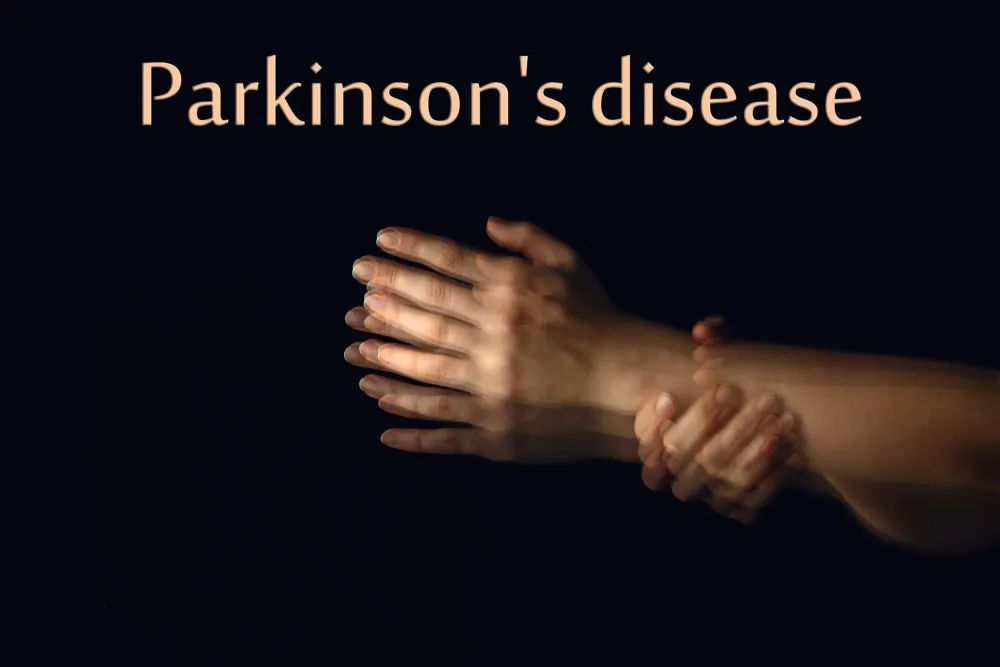A good cup of Joe in the morning can help you feel ready to face the day, but that’s not all it has to offer. Let’s explore the top morning coffee benefits.

Most self-proclaimed coffee addicts feel like they can’t start their day without their morning cup of Joe. Fortunately, out of all the vices one can have, coffee is far from being the worst (within reason). In fact, there may be some health benefits to coffee drinking in the morning.
Let’s explore the reasons why a morning cup of coffee could get your day off to a good start. Learn more in our guide on the best coffee to drink in the morning.
- 1. Coffee Wakes You Up
- 2. Caffeine Is A Natural Pre-workout Drink
- 3. Coffee Decreases Appetite
- 4. Coffee Boosts Your Mood
- 5. Coffee Helps You Socialize
- 6. Caffeine May Improve Memory
- 7. Coffee Is Good For Your Skin
- 8. Coffee May Help You Cope With Stress
- 9. Coffee Is Good For Heart Health
- 10. Coffee May Reduce Risk Of Parkinson’s Disease
- 11. Coffee Can Lower Risk Of Type 2 Diabetes
- Morning Coffee Benefits: FAQs
1. Coffee Wakes You Up
The first benefit of coffee should come as no surprise; it helps you to feel more awake and alert. One of the ways caffeine impacts the central nervous system is by blocking adenosine receptors, which are responsible for making us feel sleepy. This is why it’s not advised to drink coffee late at night, as it will make it harder to fall asleep, but it’s a lifesaver when you feel grouchy in the morning!
Although you can still reap the benefits of caffeine later in the day, having food already in your system means it might take longer to feel the effects. If you need a quick pick-me-up, drink your coffee first thing in the morning before breakfast.
2. Caffeine Is A Natural Pre-workout Drink
If you like to work out in the morning, coffee makes a great pre-workout drink. In fact, if you’re on a weight loss journey, you may have already noticed that most pre-workout products already have caffeine.
Aside from making you feel more alert, coffee can boost your adrenaline levels. This will have you feeling energized enough to make the most of your morning workout.
Having a moderate caffeine intake can also make your workout feel less strenuous, with one study noting that participants were able to exercise longer after having caffeine. Coffee can also increase your metabolic rate and fat oxidation. Coffee on its own won’t help you lose much weight, but it can help you on your fitness journey.
3. Coffee Decreases Appetite
There’s nothing more distracting than having a rumbling tummy when your lunch break is at least an hour away. While coffee is by no means a substitute for a meal, it can hold you over until it’s time to eat again. Research found that drinking coffee, especially decaf can decrease hunger while increasing levels of satiety hormones.
4. Coffee Boosts Your Mood
If you wake up in a bad mood, it’s hard to get the rest of your day back on track. Fortunately, your morning coffee might just put a smile back on your face.
Research found that consuming 200 to 250 mg of caffeine can improve mood for up to three hours. There is a line: consuming up to 600 mg of caffeine can increase tension and anxiety.
Coffee can even reduce the risk of depression, with one study finding that participants who drank four cups a day had a decreased risk of experiencing it. However, coffee shouldn’t be used as a substitute for mental health treatment.
5. Coffee Helps You Socialize

As well as putting you in a better mood, drinking coffee helps us to bond with others. For example, enjoying a morning cup of java with your co-workers can boost rapport in the workplace and make early meetings more bearable. A study noticed that even holding a warm cup of coffee could make us appear friendlier to others.
6. Caffeine May Improve Memory
Coffee is the drink of choice for many college students, and for good reason. One study from 2014 found that participants who consumed 200 mg of caffeine tablets shortly before studying a collection of images were more likely to recognize them the next day.
While this sounds promising, other studies found caffeine negatively impacted memory, so more research is needed to come to a conclusive answer. Still, if you feel like you perform better when studying with a cup of coffee, keep drinking it, as that belief might just be the thing that helps.
Keep in mind that research has suggested that caffeine may increase levels of depression, anxiety, and stress in school children, so this study hack is for adults only!
Coffee can also help to maintain brain function and may protect against cognitive decline and memory loss later in life. Research found that those who drank coffee had a reduced risk of Alzheimer’s disease and dementia.
7. Coffee Is Good For Your Skin
For those who have a long morning skincare routine, coffee might be the missing ingredient. There may be benefits to topical coffee use as well as drinking your morning brew.
Firstly, coffee grounds can be mixed with coconut oil to be used as a natural face and body exfoliator a few times a week. You might have already noticed that coffee and coffee by-products like the husks of the coffee bean are becoming popular in skincare products. That’s because the antioxidant, antimicrobial, and anti-inflammatory properties can leave your skin feeling bright and clear.
As for drinking coffee in the morning, there are still benefits. One study found that consuming coffee, as well as other polyphenol-rich foods, reduced signs of photoaging.
8. Coffee May Help You Cope With Stress
While you wouldn’t think it due to the caffeine content, drinking coffee daily could actually be making us calmer. One study on mice found that caffeine helped to combat the negative effects chronic stress has on memory and mood. Since humans may not always react the same, more research is needed to provide a definitive answer.
Anecdotally, many coffee drinkers find that caffeinated coffee helps them better adapt and cope with stress. With that said, research noted that coffee can increase the secretion of the stress hormone cortisol, but this effect was reduced in those who have a daily coffee intake.
9. Coffee Is Good For Heart Health
Your morning cup of coffee might be the key to living a long, healthy life. According to Harvard Health Publishing, those who consumed two to three cups of coffee on a daily basis not only had a lower risk of early death but were also less likely to develop cardiovascular disease.
These results are suspected to be due to the polyphenol content in coffee, as this antioxidant can reduce inflammation. Antioxidants tackle free radicals, which can contribute to premature aging and the risk of developing ailments like heart disease. An older study also found that coffee consumption reduced the risk of heart failure.
Research noted that those who drank five cups of coffee daily experienced a small rise in blood pressure levels compared to those who drank decaffeinated coffee, so always drink caffeinated coffee in moderation.
You may have previously heard that regular coffee is bad for your heart, but not that simple. While it is true that unfiltered coffee contains compounds known as diterpenes that can raise cholesterol levels, coffee is unlikely to be the main source of cholesterol in your diet. If you’re already healthy, active, and have a balanced diet, you shouldn’t need to fret about black coffee raising your cholesterol.
Coffee is not a substitute for healthcare, so if you’re concerned, speak to your doctor. You can also brew your coffee with a paper filter to catch the diterpenes. Learn more in our explainer on how many microns are in a coffee filter.
10. Coffee May Reduce Risk Of Parkinson’s Disease

Your morning cup of coffee might also help to protect your health later in life. Several studies deduced that those who consume caffeine are less likely to develop Parkinson’s disease.
Research on animals also revealed that caffeine may protect against dopaminergic neurodegeneration. In simpler terms, the loss of dopamine can be detrimental to brain health; the death of cells that produce dopamine is a hallmark of Parkinson’s disease.
11. Coffee Can Lower Risk Of Type 2 Diabetes
Your morning cup of coffee could also lower your risk of developing diabetes. A study found that those who increased their coffee intake were less likely to become diabetic.
However, for those who already have type 2 diabetes, coffee could be detrimental when it comes to managing your blood sugar levels. For example, having caffeine before eating may result in a higher blood glucose reading afterward. If you have diabetes, it’s best to speak to your doctor to determine how much coffee you can drink and when.
Morning Coffee Benefits: FAQs
Can I Benefit From Drinking Any Coffee?
While coffee is good for you, many of the ingredients it’s served with aren’t. Flavored lattes are a delicious treat, but sugary syrups and sweeteners may cancel out some of the health benefits you’re trying to reap.
Can I Reap The Health Benefits Of Coffee From Decaf?
Drinking decaffeinated coffee means you won’t reap the specific benefits associated with caffeine, like increased alertness. However, many of the benefits of coffee still stand, such as the exposure to antioxidants and mood-boosting properties.
What Are The Side Effects Of Coffee?
While coffee has plenty of benefits, there can be side effects. Most notably, drinking too much coffee can disrupt your sleep schedule, increase anxiety, and cause jitters. Coffee can also inhibit iron absorption from meals, so it’s best to have your morning cup before or after breakfast.
